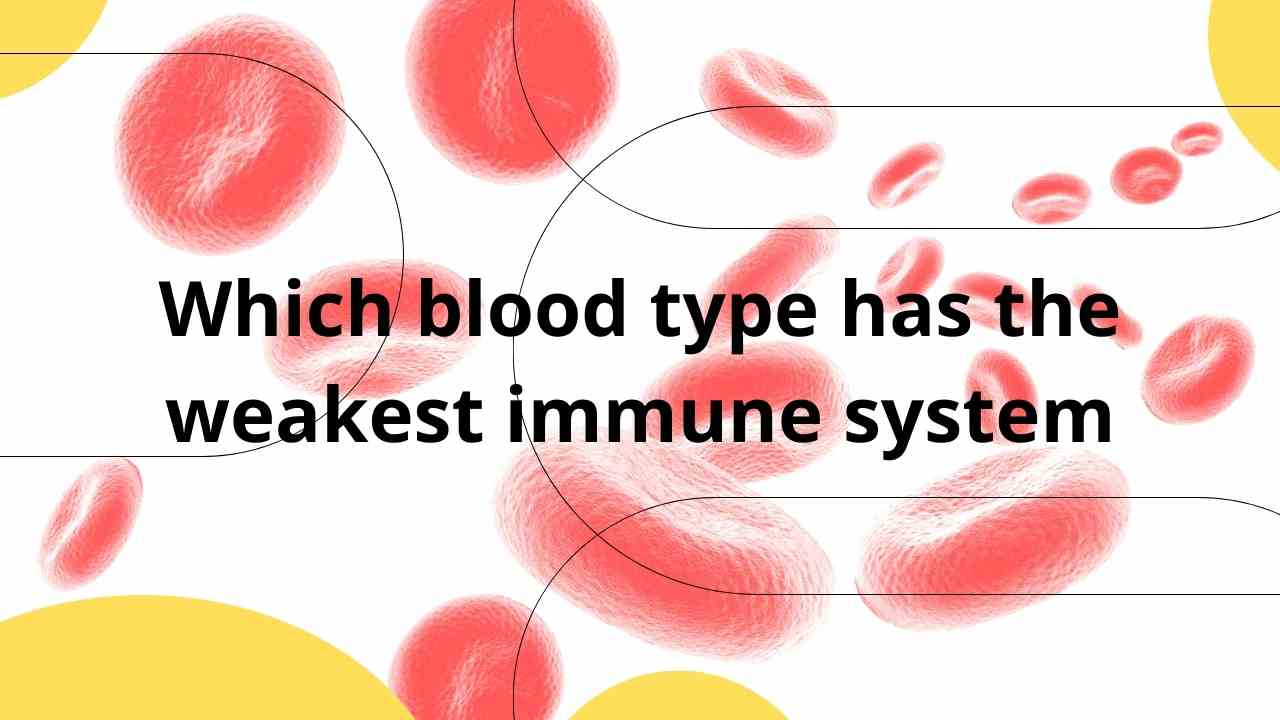Blood type is determined by presence or absence of certain antigens on surface of red blood cells. There are four major blood groups: A, B, AB, and O, and each of these blood groups can be either Rh positive or Rh negative. While blood type is primarily used to determine compatibility for blood transfusions, recent research has suggested that it may also play role in determining immune function. In this article, we will explore whether there is a blood type that has the weakest immune system and research behind this claim.
Table of Contents
What is the Immune System?
Before delving into relationship between blood type and immune function, it is important to first understand what immune system is and how it functions. The immune system is sophisticated system of cells, tissues, and organs that cooperate to defend body against invaders including viruses, bacteria, and parasites. The immune system is separated into two primary components: innate immune system and adaptive immune system.
The innate immune system is body’s first line of defense against infection. It consists of physical barriers such as skin and mucous membranes, as well as cells such as neutrophils and macrophages that can quickly identify and eliminate foreign invaders.
The adaptive immune system, on other hand, is more specialized and targeted defense mechanism that is activated when innate immune system is unable to fully eliminate foreign invader. This system is made up of cells called lymphocytes, which are capable of recognizing and remembering specific pathogens. When pathogen enters body, adaptive immune system produces antibodies that can specifically target and eliminate that pathogen.
Also Read : Online courses
Blood Type and Immune Function
Research has suggested that blood type may play role in determining immune function. Studies have found that certain blood types be associated with increased risk of certain diseases/infections. For example, individuals with blood type A at higher risk of developing stomach cancer, while individuals with blood type O may be at lower risk of developing certain types of infections like cholera and malaria.
The blood type of an individual may have an impact on how particular immune cells behave, which could be one explanation for these connections. For example, one study discovered that persons with blood type A have larger numbers of certain sort of white blood cell called B cell, which is involved in manufacture of antibodies. According to different study, people with blood type O have lesser levels of certain protein on their red blood cells, which can make them more vulnerable to infections.
However, it’s crucial to remember while these studies point to possible connection between blood type and immune function, additional analysis is necessary to properly comprehend nature of connection and mechanisms driving it.
Do Certain Blood Types Have weakest immune system?
Even while there is some evidence that blood type may influence immune function, it is unclear whether some blood types have weaker immune systems than others. According to certain studies, people with blood type A may be more vulnerable to certain infections such cancer- and stomach-causing Helicobacter pylori. Other research, however, has not discovered any appreciable variation in infection susceptibility between various blood types.
Similarly, some research have indicated those with blood type O may be less likely to get specific illnesses including pancreatic cancer and heart disease. Other research, however, has not discovered any conclusive link between blood type and disease risk.
It is important to note that variety of factors, including genetics, lifestyle, and environmental factors, might affect someone’s vulnerability to infections and disease. One of many variables that may affect immune function and illness risk is blood type.
FAQ’s
Q: What are different blood types?
Four main blood types are A, B, AB, and O.
Q: How is blood type determined?
Blood type is determined by presence or absence of specific antigens on surface of red blood cells and by presence or absence of certain antibodies in blood.
Q: Why is it important to know blood type?
Knowing blood type is important for medical procedures such as blood transfusions and organ transplants, for understanding your risk of certain diseases.
Q: Can person’s blood type change over time?
No, person’s blood type does not change over time.
Q: Is it possible for parents with certain blood types to have child with different blood type?
Yes, it is possible for parents with certain blood types to have child with different blood type due to genetic inheritance patterns.
Conclusion
Blood type and immune function have a complex and poorly understood relationship, despite some evidence that suggests blood type may play a role in defining immunological function and illness risk. While some research have linked specific blood types to higher risk of contracting certain infections or disorders, other studies have not detected any appreciable variations in blood types.
